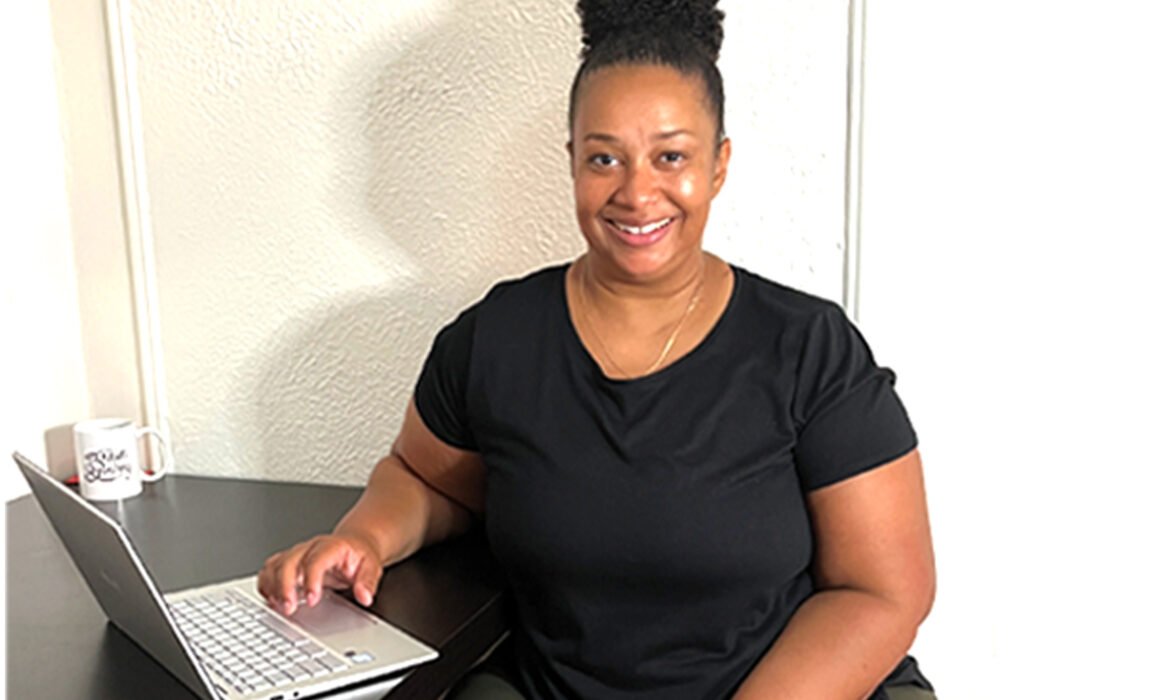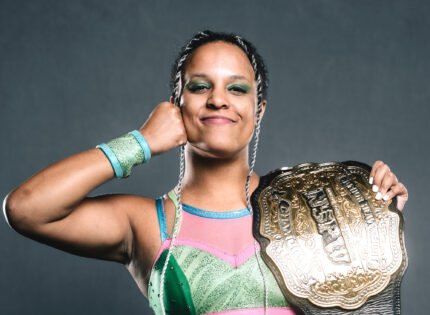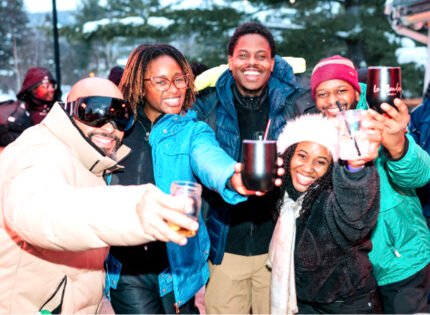With a career spanning two decades, Montrealer Michelle Beckles has amassed a wealth of knowledge and experience, distinguishing herself as a true expert in athletic therapy. She is the most senior Black female athletic therapist in Quebec, a path she devoted herself to early on in her life.
It’s hard for people to become what they do not see; Beckles journey illustrates this. In her teens, she sustained an injury while playing soccer. She noticed medics rush towards her, and they bandaged her up and she  was able to continue. It was later she learned who they were and what that was: athletic therapy. The combination of athletics and an affinity for the medical world pushed Beckles to make a career out of her passion. She studied at Concordia University, where she graduated with a Bachelor of Science (B.Sc.) degree in Exercise Science, Specialization in Athletic Therapy in 2007.
was able to continue. It was later she learned who they were and what that was: athletic therapy. The combination of athletics and an affinity for the medical world pushed Beckles to make a career out of her passion. She studied at Concordia University, where she graduated with a Bachelor of Science (B.Sc.) degree in Exercise Science, Specialization in Athletic Therapy in 2007.
Beckles—who describes herself as a lifelong student, has continued on the path of learning. She tells the CONTACT, “We are still learning about the body; there’s so much we still don’t know.”
She went on to get a Certificate in Swedish Kinetic Massage Therapy from Institut Kine-Concept in 2010, further enriching her therapeutic toolkit. She soon after worked at Dawson College as an athletic therapist. At Dawson, she carved her niche as she worked on not only professional athletes but also amateur athletes. She continued to leave her mark in the field—she joined Canada Soccer’s women’s national youth and men’s Para Soccer programs in 2011. She was vital to the Canadian team when they secured the second spot at the 2012 CONCACAF Women’s Under-17 Championship in Guatemala. And in the same year she served on Canada’s staff at the FIFA U-17 Women’s World Cup in Azerbaijan.
However, her journey took a significant turn in 2020, amidst the pandemic and after becoming a single mother. In a bold move, she opened her private clinic in Montreal. At her clinic, Beckles extends her healing touch to everyone who needs it not just athletes. She helps their bodies reach their peak and perform better. Her dedication to continuous improvement is evident as she has expanded her skill set to include sports taping and dry cupping among others.
Her holistic approach sets her apart; she doesn’t just focus on the physical aspect of healing; she understands the importance of mental and emotional well-being in recovery. She shared this insight with the CONTACT at her office.
“What I learned last year is knowing how to release that emotional aspect, which is something that I notice a lot of people, more so Black people have been dealing with a lot of stress and anxiety. I’m able to help them feel better as a therapist, as a human, but to be able to guide them through it.”
Beckles follows techniques that aid in releasing emotional trauma while recognizing her boundaries and referring clients to mental health professionals for further support. This holistic approach has been transformative for many who seek her care.
Beckles emphasizes that she isn’t a psychologist or psychotherapist; her techniques allow her to guide her patients toward emotional release. She then refers them to mental health therapists for further support, ensuring a comprehensive approach to healing.
Recognized for her outstanding contributions to the field, Michelle Beckles has received several awards, but she remains focused on her mission: providing the best care to her patients. As a Black woman in healthcare, she recognizes the challenges Black individuals face when it comes to pain and injury.
“I once had a patient (Black), and he called me after he sustained an injury on the field when he explained to me how he got injured and the popping sound he heard,” she recounts, “I told him he had torn his ligament and needs to go to the emergency room. But when he went, because he was walking, they sent him back without any kind of x-rays being done. Those are some of the unfortunate things that happen with Black patients, and because we have a high threshold for pain, we aren’t treated when we should be and this prolongs injuries and sometimes makes them worse.”
These and multiple other incidences push her commitment to advocating for everyone to take their body and its needs seriously.
Although Beckles is fully bilingual, she is still apprehensive about the impact of Bill-96. Should it affect her practice, she admits the thought of relocating has crossed her mind.
“I don’t know what this all would mean but if it would affect my business and how I serve my patients, then I would consider moving.”
Despite all this, she remains stoic and continues to do her part in helping her patients live their best lives. As she looks back on her journey, she has great admiration and gratitude to her Guyanese parents, who encouraged her to reach for the stars. And she hopes other BIPOC students will look to her as an example and take up this lesser-known but still important field.
In a world where health is more crucial than ever, Michelle Beckles is a shining example of dedication, compassion, and excellence.












